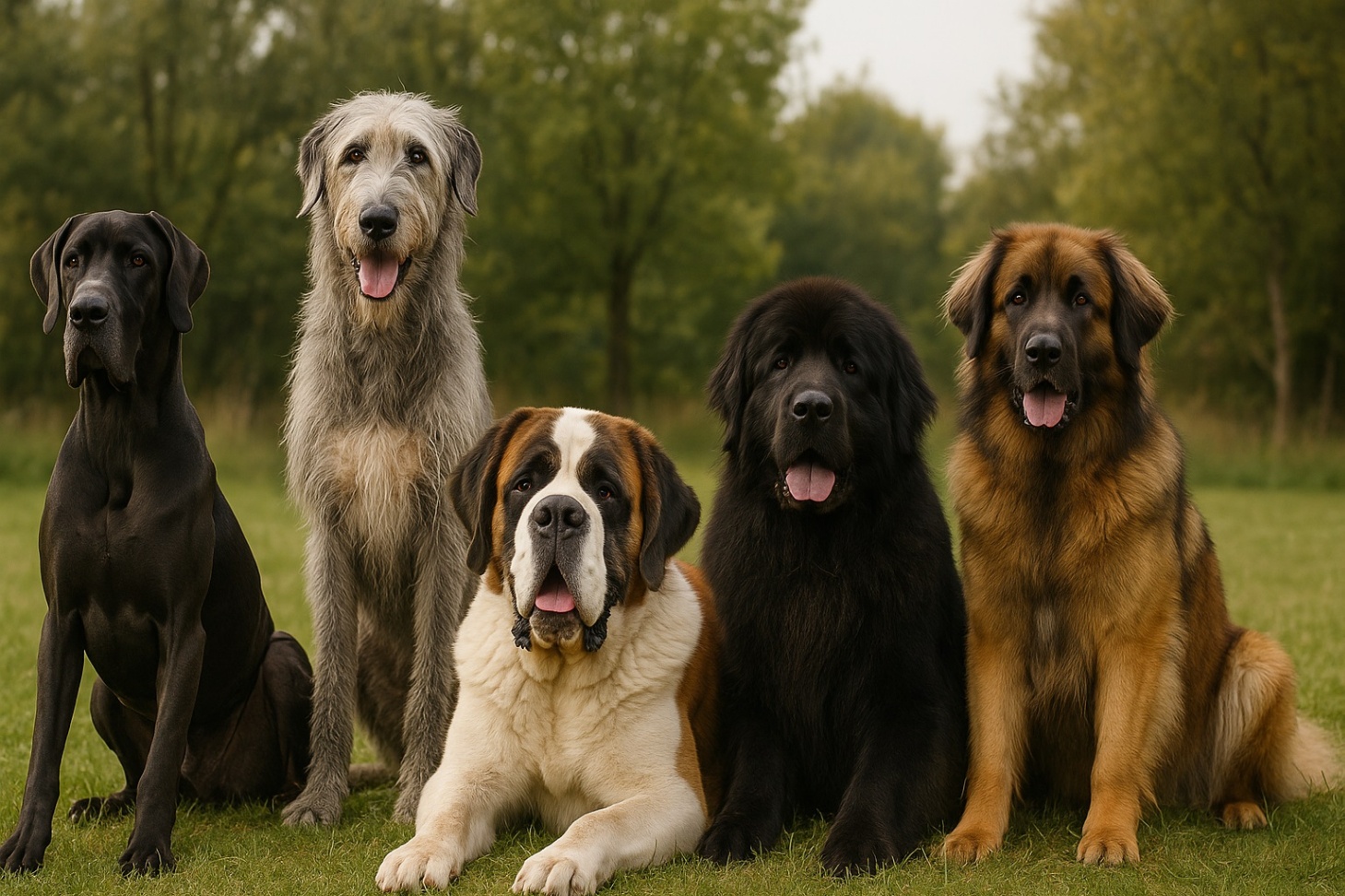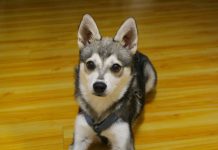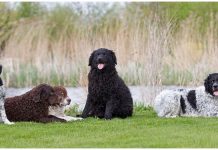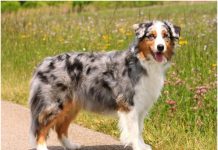Many want to acquire dog breeds that don’t bark much.
Finding a canine companion that won’t disturb your apartment neighbors can be a challenge, but there are several breeds that naturally “speak softly.”
Although no dog is entirely silent, the breeds below are among the quietest, ideal for small living spaces.

Why Do You Want Dog Breeds That Don’t Bark Much?
Wanting a dog breed that doesn’t bark much is often about adapting to your environment and lifestyle.
In apartment buildings, barking can easily disturb neighbors through shared walls or thin floors.
Choosing a quieter breed helps maintain good relationships and avoid noise complaints.
Not everyone enjoys a noisy home. If you're working from home, studying, or just value tranquility, a low-barking dog supports a more serene environment.
Problems
Many landlords or homeowners’ associations (HOAs) have strict rules about noise.
Repeated barking could lead to fines, warnings, or even eviction in some pet-restricted properties.
Some people—especially those with anxiety, PTSD, or sensory processing issues—find loud, unexpected barking stressful.
Advantages
New dog owners may find it difficult to manage nuisance barking. Calm, quiet breeds can make training and adjustment smoother.
If you plan to bring your dog on public transport or into dog-friendly shops and cafes, a dog that stays quiet makes outings less stressful and more socially acceptable.
Main Dog Breeds That Don’t Bark Much
Consider:
1. Basenji – The “Barkless” Wonder
Known as the “barkless dog” from Central Africa, the Basenji doesn’t bark in the conventional sense.
Instead, it makes unique yodel-like vocalizations known as “baroos”.
- Apartment fit: Compact (20–24 lbs), low-shedding, with minimal doggy odor.
- Temperament & care: Intelligent, energetic, and independent—needs mental stimulation but generally well-suited to apartment life.
2. Cavalier King Charles Spaniel
These affectionate toy dogs are calm and rarely bark unless necessary.
- Apartment fit: Small size (13–18 lbs), gentle disposition, and adaptable.
- Temperament & care: Crave companionship, get along well with people and pets, moderate grooming needs to maintain their silky coat.
3. Bichon Frise
Known for being friendly and alert, they bark minimally at disturbances.
- Apartment fit: Small (7–12 lbs), cheerful, non-shedding coat.
- Temperament & care: Playful, sociable, with moderate grooming needs; responds well to training and exercise.
4. French Bulldog
Brachycephalic with low energy and low vocal tendency.
- Apartment fit: Compact build, minimal exercise requirements, especially barks a little.
- Temperament & care: Friendly and lazy—a perfect couch companion. Careful with heat and respiratory issues.
5. Pug
Ranked highly among apartment dogs for their calm and minimal barking.
- Apartment fit: Small size and agreeable nature.
- Temperament & care: Social cuddlers who do best with companionship; brachycephalic needs similar considerations to French Bulldogs.
6. Boston Terrier
Gentle and bark only when necessary.
- Apartment fit: Small (under 25 lbs), friendly, and well-mannered.
- Temperament & care: Easy to train, great with families and other pets; moderate grooming.
7. Greyhound
Sighthound breed that rarely barks; typically calm indoors.
- Apartment fit: Surprisingly good urban dogs—calm indoors despite athletic ability.
- Temperament & care: Needs regular walks but is low-key at home; gentle, low-maintenance coat.
8. Bernese Mountain Dog
Gentle giants with calm dispositions and low barking tendencies.
- Apartment fit: A Larger build means less suitability for small spaces, but their calm nature helps.
Temperament & care: Loyal and affectionate, require grooming and exercise; ideal for spacious apartments or buildings with elevators.
9. Japanese Chin
Admired for being one of the most reserved toy breeds, they bark very little. Reddit praise:
“Japanese Chins! They are perfect. Mine don’t bark.”
- Apartment fit: Tiny and calm, suited for confined spaces.
- Temperament & care: Delicate lapdogs who love relaxation; minimal exercise, some grooming required.
10. Scottish Terrier
Bark only when needed; loquaciousness is limited by territorial instincts.
- Apartment fit: Compact and sturdy, comfortable indoors.
- Temperament & care: Independent and loyal; regular coat trimming and mental stimulation help curb any nuisance barking.

Other Quiet Breeds Worth Mentioning
These dog breeds that don’t bark much are not as popular, but still a good choice for a department owner.
- Coton de Tulear: Gentle, responsive, with polite vocal habits dogtime.com
- Havanese, Maltese: Friendly toy breeds with low barking tendencies pawfectpoopremoval.com
- Borzois, Basset Hounds: Gentle, low-vocal sighthounds and scent hounds pawfectpoopremoval.com.
- Afghan Hound: Quiet and independent, though it needs grooming and space.
Why Some Breeds Bark Less
Sighthounds (Greyhound, Basenji, Borzoi) hunt quietly by sight, not alerting with voice.
Companion breeds (Cavalier, Bichon, Japanese Chin) were bred for calm, household roles.
Calm, confident dogs (French Bulldog, Bernese) are less reactive. Independent or low-energy dogs (Basenji, Scottie) vocalize only when necessary.
While breed provides a baseline, early socialization, training, exercise, and mental enrichment help all dogs stay quiet.
Choosing the Right Quiet Dog for You
While choosing dog breeds that don’t bark much, consider:
| Breed | Size | Exercise Needs | Grooming | Apartment Suitability |
|---|---|---|---|---|
| Basenji | Small–medium | High energy, indoor/outdoor | Low-shedding | ★★★★☆ |
| Cavalier King Charles | Small | Moderate walks | Moderate brushing | ★★★★★ |
| Bichon Frise | Small | Moderate play | High (grooming) | ★★★★★ |
| French Bulldog | Small–medium | Low–moderate | Low grooming | ★★★★★ |
| Pug | Small | Moderate | Low | ★★★★★ |
| Boston Terrier | Small | Moderate | Low | ★★★★★ |
| Greyhound | Large | High (daily) | Low | ★★★★☆ |
| Bernese Mountain Dog | Large | Moderate | High | ★★☆☆☆ (space limiter) |
| Japanese Chin | Tiny | Low | Moderate | ★★★★★ |
| Scottish Terrier | Small | Moderate | High (coat care) | ★★★★★ |
Every person, dog, and apartment must coexist as a whole. Finding the right match for a healthy ecosystem in your home is the key.
Tips for Keeping Any Dog Quiet
Early socialization and training help dogs distinguish between normal stimuli and real threats.
Adequate exercise and mental stimulation keep energy levels calm and reduce boredom barking.
Positive reinforcement rewards quiet behavior to encourage calm habits.
Manage HOA or noise rules. Know your landlord’s or building association’s policies before committing.
Final Thoughts
Each of these dog breeds that don’t bark much has distinct personality traits and care needs, so choose one that aligns with your lifestyle.
Ultimately, a calm dog results from both natural temperament and loving, structured care.
For those seeking peace and companionship in smaller living spaces, a quiet dog breed can make apartment living a joy for you and your neighbors.




















